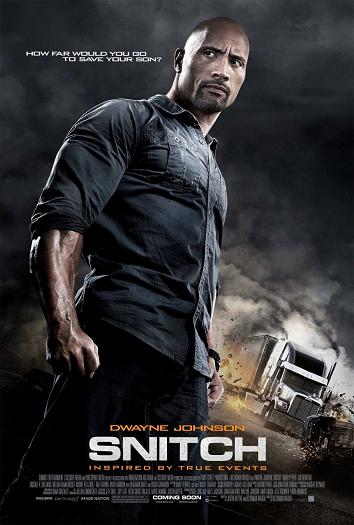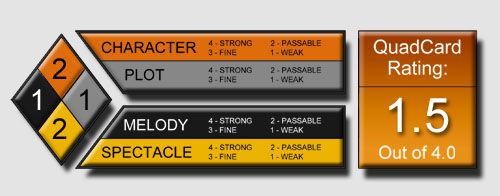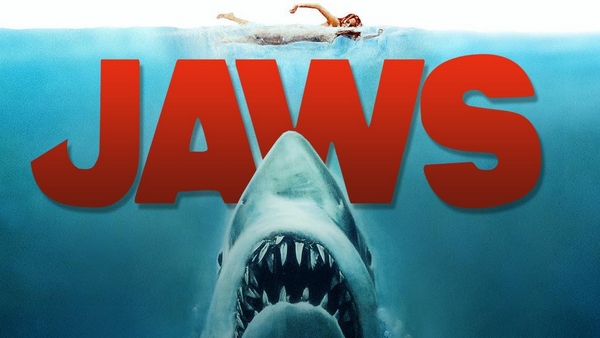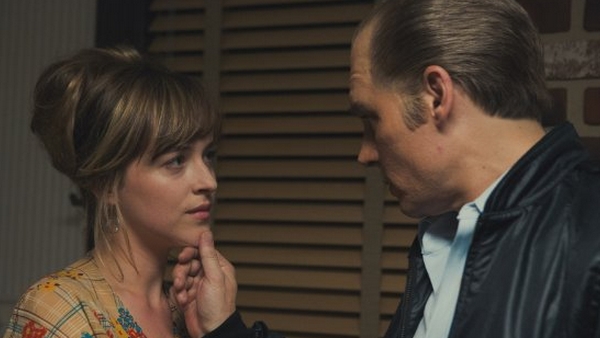
The nicest thing that can be said about Snitch, the film that commences Dwayne “The Rock” Johnson’s movie year, is that it’s no The Tooth Fairy. If we search for a silver lining, too, we can also rationalize that it can only be uphill from here. (And then we can cross our fingers.) Several years ago I might have opined that nobody really knew how best to utilize Johnson’s myriad talents, from his sense of humor to his obvious physicality, but even then I would have been lying; if you need to see the People’s Champion at his best, just watch The Other Guys or The Rundown and marvel at his charisma, comic timing, and brute force capabilities. This man is, without a doubt, the total package.
 But Snitch is woefully incomplete, and it doesn’t matter how good Johnson is when he’s in his element when he’s working with material this thin. Here, he’s John Matthews, a father trying his damnedest to free his son from jail after the lad is wrongly accused of distributing drugs and sentenced to a decade in the slammer. Truthfully, Jason (Rafi Gavron) is to blame for his imprisonment, but his stupid, fateful decision– he agrees to hold drugs for his dealer friend– doesn’t call for the sort of treatment he receives, and John, being a dutiful (if rather distant) dad, just can’t bear to see Jason suffer. This is actually interesting territory for Johnson, and if nothing else he acquits himself well as an family man (a dashingly handsome, impossibly musclebound family man) just trying to do right by his teenaged boy.
But Snitch is woefully incomplete, and it doesn’t matter how good Johnson is when he’s in his element when he’s working with material this thin. Here, he’s John Matthews, a father trying his damnedest to free his son from jail after the lad is wrongly accused of distributing drugs and sentenced to a decade in the slammer. Truthfully, Jason (Rafi Gavron) is to blame for his imprisonment, but his stupid, fateful decision– he agrees to hold drugs for his dealer friend– doesn’t call for the sort of treatment he receives, and John, being a dutiful (if rather distant) dad, just can’t bear to see Jason suffer. This is actually interesting territory for Johnson, and if nothing else he acquits himself well as an family man (a dashingly handsome, impossibly musclebound family man) just trying to do right by his teenaged boy.
To that end, Matthews decides to go undercover to secure some arrests for bigger drug busts, beseeching hard-right Senate hopeful Joanne Keeghan (Susan Sarandon) for aid and cajoling Daniel (Jon Bernthal), one of his ex-con employees, into helping him. Given Johnson’s and Bernthal’s respective experiences with gunplay and action– you may recognize Bernthal as the most memorable cast member of AMC’s The Walking Dead— the promise of all that set-up sounds tantalizing, but surprisingly it leads absolutely nowhere. What would you do to save your loved ones? It’s a valid, worthy question, and one that strongly echoes throughout the whole of Snitch‘s narrative, but it’s not enough for a film to merely ask a question; it has to be able to successfully answer it, too.
Unfortunately, Ric Roman Waugh’s response proves to be less than compelling. When Matthews finds himself at the mercy of Mexican drug cartels and operating at the whims of Keeghan and her DEA contacts, he vows not to let any of them control his life. The sentiment is understandable enough; Jason’s conviction stinks to say the least, largely thanks to the Federal drug policies and first offender laws Snitch repeatedly references. What’s problematic is that Matthews thinks he can take charge of his destiny by buying a gun. The message is boorish: arm yourself, and carve out your own path in life.

None of this would be troublesome if Snitch treated Matthews as a man of violence capable of outwitting vicious drug barons and veteran Federal agents. Purchasing a shotgun at Wal-Mart, apparently, makes you special. I would buy that if Snitch didn’t try to have its cake and eat it too, but the turnaround in Matthews’ character presents the film’s major Achilles’ heel: it has no idea what sort of movie it wants to be. Is it a macho, gritty action movie about two very different men’s ideas of what it means to be responsible for their spouses and children? Or is it a social drama about America’s war on drugs? Johnson’s presence in the film suggests the former, but Snitch has him mostly running in a different gear.
So Waugh gives us the latter, and his efforts add up to half-cocked hackishness. Forget about the fact that Matthews becomes a crack shot when the script demands it; forget about the fact that The Rock passes for an everyman as well as I pass for The Rock. Snitch might not be capable of choosing what mode it wants Johnson in, but he’s a solid performer and he stoically saddles the idiotic dialogue he’s burdened with. The real issue here is that Snitch can’t figure out if it’s a D.A.R.E.-sponsored PSA declaring the evils of drugs, or a protest picture with an agenda that rails against Federal drug policies. Waugh smugly thinks he can have it both ways, and after two punishing hours and a woefully saggy middle, his decision not to take a solid stance one way or the other results in an ambivalent picture.

And that’s why Snitch has nothing of real value to offer us. Sure, Johnson’s watchable even when he’s struggling mightily with Waugh’s ham-handed script, and Bernthal brings the same sort of pragmatic humanity to Daniel which he instilled in Shane Walsh; they’re joined by a plethora of recognizable faces in the supporting cast, though the moment Michael K. Williams shows up as a gangster you may begin to realize that Snitch is consciously taking the road most traveled. But by choosing equivocation, the film winds up saying absolutely nothing about its thematic elements, rendering the entire production hollow.
G-S-T Ruling:
Maybe Waugh would have been better off taking the “guns blazing” route; at least then we might be willing to forgive him for refusing to take a position, though the “action” that takes place here is shot so poorly that maybe it’s a blessing that Snitch doesn’t go full-bore with shaky-cam chase scenes and gun fights. Instead, we’re just left with a bland, amorphous story which its leading men are far, far too good for. Nothing is more frustrating than a movie that doesn’t find its own identity, or worse, that is actively prevented from doing so, but it’s difficult to say whether the movie’s central indecision or its frankly loathsome sense of cowboy morality represents Snitch‘s worst offense.



